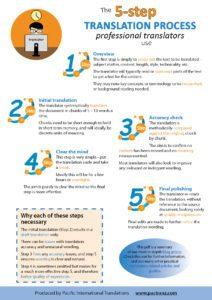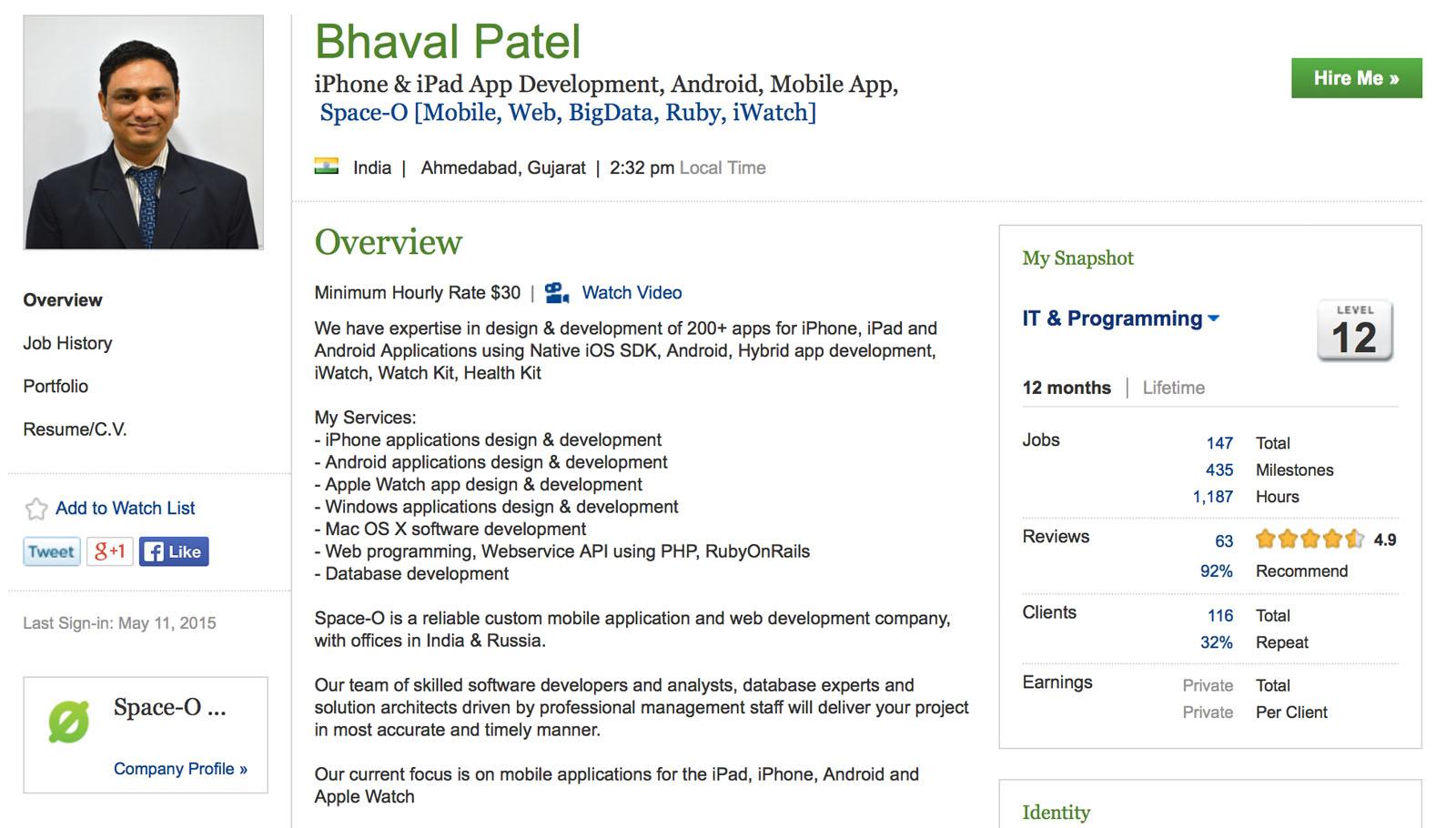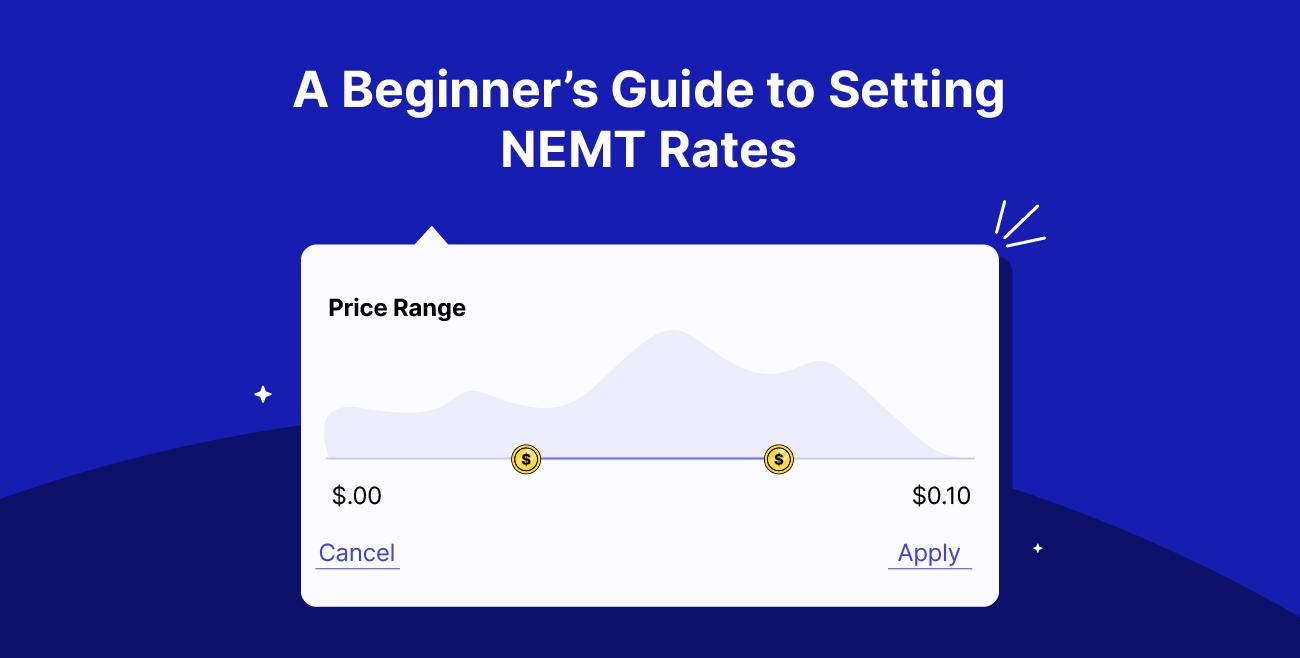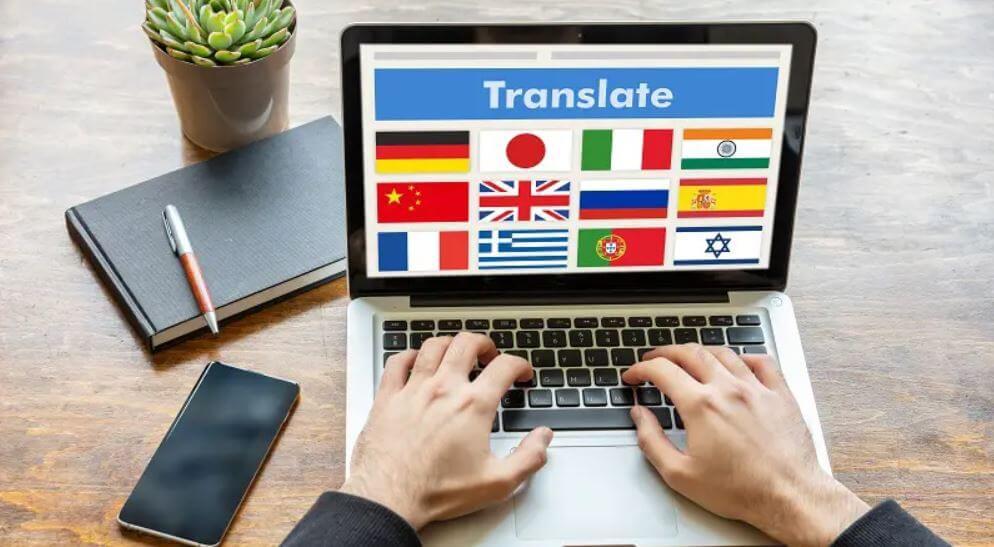
Are you looking to dive into the world of translation but worried that you don’t have the experience to get started? You’re not alone! Many aspiring translators share the same concern, but the good news is that there are plenty of opportunities out there for beginners to make money translating. Whether you’re a language enthusiast, a stay-at-home parent, or simply someone looking to earn some extra cash on the side, translating can be a rewarding and flexible way to tap into your linguistic skills. In this article, we’ll walk you through practical tips on how to kickstart your translation journey, even if you’re just starting out. Plus, we’ll introduce you to over 15 of the best websites where you can find translation gigs that suit your skills and interests. So, grab a cup of coffee, and let’s explore how you can turn your passion for languages into a profitable venture—no experience necessary!
Understanding the Growing Demand for Translation Services
The demand for translation services is soaring, and it’s not just a passing trend. In an increasingly globalized world, businesses and individuals are seeking ways to communicate effectively across language barriers. This growing need stems from several key factors that make translation a vital service in today’s marketplace.
1. Globalization of Businesses: As companies expand their reach into international markets, the need for accurate and culturally relevant translations becomes essential. Whether it’s a marketing campaign or legal documentation, clear communication in the local language can make or break a deal. This has led to a surge in demand for professional translators who can navigate the nuances of language.
2. E-commerce Boom: The rise of e-commerce has further amplified the need for translation services. Online retailers want to cater to diverse audiences, and that means translating product descriptions, customer reviews, and website content into multiple languages. Translators who can bridge these gaps are more valuable than ever.
3. Increased Migration and Travel: With more people traveling and relocating than ever, the need for translation services in immigration paperwork, travel documents, and even personal communication is rising. This demand isn’t limited to businesses but also extends to individuals seeking assistance in navigating new environments.
4. Digital Content Explosion: The internet is filled with content in various forms—blogs, videos, podcasts, and more. As creators target global audiences, they require translation to ensure their messages resonate. This creates a wealth of opportunities for translators to work on diverse projects.
5. Advancements in Technology: While technology has automated some translation processes, it has also enhanced the profession. Tools like CAT (Computer-Assisted Translation) software help translators maintain consistency and efficiency, allowing them to take on more projects without compromising quality.
With this growing demand, many people are discovering that translation can be a lucrative side hustle or even a full-time career. Whether you have formal training or are just starting out, there are numerous platforms available where you can offer your services. The key is to leverage the increasing need for translation, positioning yourself as a reliable option for clients in need of language expertise.
Depending on your language skills and interests, you can explore various niches such as:
- Technical Translation: Manuals, guides, and scientific documents.
- Literary Translation: Books, poems, and creative writing.
- Medical Translation: Patient records and pharmaceutical information.
- Legal Translation: Contracts and agreements.
In this evolving landscape, those willing to embrace the opportunity can thrive, even without prior experience in the field. By capitalizing on platforms designed for freelancers, you can start your journey in translation and contribute to a globally connected world.

Identifying Your Language Pairs and Niche Areas
When embarking on your journey to make money through translation, pinpointing your language pairs and niche areas is crucial. Understanding these elements not only helps you stand out in the competitive market but also allows you to focus on what you do best. Here’s how to identify them effectively.
First, consider your language pairs. These are the combinations of languages you can translate between, such as English to Spanish or French to German. Choosing your primary language pair should be based on:
- Your fluency and comfort level in both languages
- The demand for those languages in the translation industry
- Market rates for those specific language pairs
Next, think about your niche areas. These refer to specialized fields where you can leverage your knowledge or experience. Identifying a niche can significantly enhance your earning potential because clients often seek translators with expertise in specific subjects. Some profitable niches include:
- Medical and healthcare
- Legal documents and contracts
- Technical manuals and IT
- Marketing and advertising
- Financial services and accounting
To make the most of your skills, it’s useful to create a table outlining your strengths and interests. This exercise can also help you visualize where you might fit best in the translation landscape:
| Language Pair | Niche Area | Fluency Level |
|---|---|---|
| English - Spanish | Medical | Advanced |
| French – English | Legal | Fluent |
| German – English | Technical | Intermediate |
| Spanish – English | Marketing | Fluent |
Once you have identified your language pairs and niche areas, take the time to research the market. Explore job boards, translation agencies, and freelance platforms to see what types of projects are available and how they align with your skills. This research will not only reaffirm your choices but also guide you in refining your offerings.
don’t hesitate to network within your chosen niche. Engaging with professionals in specific fields can lead to referrals and job opportunities. Join relevant online forums, attend webinars, or participate in local meetups related to translation and your niche. Building a solid network can significantly boost your visibility and credibility in the translation industry.

Essential Skills Every Aspiring Translator Should Develop
To thrive as a translator, certain critical skills are essential for anyone looking to break into this field, especially if you’re starting without prior experience. Building a solid foundation can set you apart, even when you’re just beginning your journey.
Language Proficiency: At the core of translation is a deep understanding of at least two languages—your source and target languages. This means not only knowing vocabulary and grammar but also grasping nuances, idioms, and cultural references. Aim to enhance your vocabulary continuously and stay updated on the evolving language trends.
Cultural Competence: Translating isn’t just about words; it’s about meaning. Understanding cultural contexts helps ensure that your translations resonate with the target audience. This could involve:
- Researching cultural norms and values
- Being aware of regional dialects and variations
- Understanding social contexts that may influence language use
Research Skills: A translator often encounters specialized terminology across various fields such as law, medicine, or technology. Developing strong research skills enables you to find accurate translations and understand the context of the content. Familiarize yourself with:
- Industry-specific glossaries
- Online databases and resources
- Forums and professional networks
Attention to Detail: Precision is paramount in translation. Minor mistakes can lead to misinterpretations or even legal issues. Cultivating a meticulous approach to your work will ensure you deliver high-quality translations. Try incorporating tools that help you maintain accuracy, like:
- Grammar and spell check software
- Translation memory tools
Creative Writing Skills: Sometimes, a literal translation doesn’t convey the message effectively. Being able to adapt and creatively rewrite sentences while maintaining the original meaning is a valuable skill. Practice rewriting texts in various styles and formats to enhance your creativity.
Time Management: Translating can often come with tight deadlines. Establishing effective time management techniques is crucial. Consider using:
| Technique | Description |
|---|---|
| Prioritization | Identify urgent tasks and tackle them first. |
| Goal Setting | Set achievable daily or weekly targets. |
| Breaks | Take regular breaks to maintain focus and productivity. |
By honing these essential skills, you’ll not only increase your employability but also enhance the quality of your translations. Remember, the journey to becoming a proficient translator is ongoing, so stay curious, keep learning, and embrace the challenges that come your way.

How to Build a Compelling Freelance Profile from Scratch
Creating a freelance profile that stands out can feel daunting, especially if you’re just starting and lack experience. However, with the right approach, you can build a profile that attracts clients and showcases your potential. Here are some essential tips to guide you through the process:
- Choose the Right Platform: Begin by selecting a freelance platform that aligns with your skills and target market. Websites like Upwork, Fiverr, and Freelancer are popular choices. Understand their audience and tailor your profile accordingly.
- Craft a Catchy Headline: Your headline is the first thing potential clients will see, so make it engaging and specific. Instead of just stating “Translator,” try something like “Professional Translator Specializing in Spanish to English.”
- Write a Compelling Summary: Your summary should highlight your skills, enthusiasm, and what makes you unique. Even without experience, you can mention any relevant education, personal projects, or skills that make you a suitable candidate for translation work.
- Showcase Your Skills: Use the skills section to list relevant abilities. Focus on language proficiency, cultural knowledge, and any specialized fields like legal or medical translation. Be honest about your capabilities.
Visuals also play a crucial role in making your profile appealing. Consider adding a professional profile picture and relevant documents or samples of your work. Even if you don’t have client projects to showcase, you can create mock translations or volunteer projects that demonstrate your skills.
Get Testimonials: If you’re new and don’t have client feedback yet, consider asking friends or colleagues for endorsements. Testimonials can significantly enhance your credibility. Having someone vouch for your work can be the push potential clients need to hire you.
Set Competitive Rates: While it might be tempting to charge lower rates to attract clients, it’s essential to find a balance. Research what other freelancers in your niche are charging. Setting your prices too low can undervalue your services, while pricing too high can deter clients.
| Platform | Target Audience | Best For |
|---|---|---|
| Upwork | Businesses of all sizes | Freelancers with various skills |
| Fiverr | Small businesses and individuals | Specific services and gigs |
| Freelancer | Startups and freelancers | Project-based jobs |
keep your profile updated. As you gain experience, continually refine your profile to reflect your latest skills, projects, and accomplishments. This will keep you relevant and appealing to potential clients, making it easier to land translation gigs even as a newcomer.

Exploring the Top Platforms for Beginner Translators
As a budding translator, choosing the right platform can significantly influence your journey into the world of translation. Fortunately, many websites cater specifically to novices, offering user-friendly interfaces, supportive communities, and opportunities for growth. Here are some of the top platforms that can help you kick-start your translation career.
ProZ.com is one of the most well-known platforms in the translation industry. It’s a vibrant community where translators can connect, share resources, and find job opportunities. Beginners can benefit from the extensive forums and educational materials available, helping you to refine your skills while networking with experienced professionals.
Fiverr is a fantastic place for beginners to advertise their translation services. You can create a profile highlighting your skills and set your own prices. This flexibility allows you to build experience without the pressure of strict deadlines. Plus, the platform’s built-in messaging system makes it easy to communicate with clients.
Upwork operates similarly to Fiverr, but it offers a broader range of freelance job opportunities. You can bid on translation projects that match your skill level. While competition can be tough, crafting a compelling proposal can help you land your first job and start building your portfolio.
Gengo is another excellent option for new translators. This platform specializes in translation services and offers a straightforward application process. Once accepted, you can choose from a variety of projects that fit your language pair and proficiency level. Gengo also provides useful feedback on your work, which can accelerate your learning curve.
TranslatorsCafe is a unique platform that functions as a job board and a community forum. Here, you can find job listings, connect with other translators, and participate in discussions. The community aspect is particularly beneficial for beginners, as you can seek advice and mentorship from more experienced translators.
Another option is TextMaster, which is ideal for those who prefer a more structured approach. This platform allows translators to work on tasks that match their expertise, providing a steady stream of projects. Additionally, TextMaster offers training resources to help you improve your skills and become more competitive in the market.
Lastly, consider PeoplePerHour, which allows freelancers to showcase their skills and receive job offers from clients. The platform is user-friendly, making it an appealing choice for those new to freelancing. By creating a strong profile and actively applying for jobs, you can quickly gain experience and build a client base.
| Platform | Key Features | Ideal For |
|---|---|---|
| ProZ.com | Community forums, job listings | Networking |
| Fiverr | Custom gigs, flexible pricing | Self-promotion |
| Upwork | Project bidding, diverse jobs | Freelancers |
| Gengo | Feedback, project variety | Skill development |
| TranslatorsCafe | Job board, forums | Community support |
| TextMaster | Structured tasks, training | Focused work |
| PeoplePerHour | Freelancer profiles, job offers | Quick experience |
Each of these platforms offers unique features tailored to help beginners navigate the complexities of the translation industry. By leveraging these resources, you can begin to build your portfolio, gain experience, and ultimately, pave your way to a successful translation career.

Tips for Crafting Winning Proposals that Land Jobs
Creating a proposal that stands out is essential in a competitive market, especially when you’re looking to land translation jobs without prior experience. Here are some strategies that can help you shine:
- Research Your Client: Before you even begin drafting your proposal, take some time to understand the client’s needs, their brand, and the specific project details. Tailoring your proposal to align with what they’re looking for shows initiative and genuine interest.
- Showcase Relevant Skills: While you may not have direct experience in translation, highlight any related skills. This could include language proficiency, cultural knowledge, or any relevant coursework. Make sure to emphasize these in your proposal.
- Be Clear and Concise: Clients appreciate concise proposals that get straight to the point. Outline your approach, timeline, and pricing without unnecessary fluff. A well-structured proposal is easier to read and understand.
- Include Samples: If possible, include samples of your work, even if they are hypothetical or from related fields. This gives potential clients a glimpse into your capabilities and style.
- Highlight Benefits: Rather than just listing your qualifications, articulate how you can solve the client’s problems or improve their project. This shifts the focus from your skills to the value you bring.
- Professional Presentation: Make sure your proposal is visually appealing. Use clear headings, bullet points, and consistent formatting to make it easy to digest. A well-presented proposal reflects your professionalism.
- Follow Up: After submitting your proposal, don’t hesitate to follow up after a few days. A polite reminder can keep your proposal top of mind and shows your enthusiasm for the opportunity.
Consider utilizing templates that are proven to work, or even creating your own based on successful proposals you come across. This not only saves time but also ensures you don’t forget to include any important sections or details.
| Proposal Element | Importance |
|---|---|
| Client Research | High |
| Clear Structure | Medium |
| Relevant Samples | High |
| Professional Presentation | Medium |
| Follow-Up | High |
Lastly, remember that every proposal is an opportunity to learn and improve. Ask for feedback if you’re not selected, and use that information to refine your approach for future proposals. Every step you take brings you closer to landing those translating gigs!

Building Your Network: Leveraging Social Media and Professional Groups
In the world of translation, your network can be a powerful asset, especially when you’re just starting out. Building connections through social media and professional groups can open doors to new opportunities and give you insights into the industry. Here’s how you can effectively leverage these platforms to kickstart your translation career.
Social Media Platforms
Social media is a treasure trove of potential clients and collaborators. Here are some strategies to maximize your presence:
- Join Relevant Groups: Platforms like Facebook and LinkedIn host groups specifically for translators. By joining these, you can engage with fellow translators, share experiences, and find job leads.
- Share Your Work: Use platforms like Instagram or Twitter to showcase snippets of your translations or insights about the translation process. This helps in building your personal brand.
- Engage with Industry Leaders: Follow established translators and agencies on social media. Commenting on their posts or sharing their content can increase your visibility within the community.
Professional Associations
Becoming a member of professional translation organizations can significantly enhance your network. Consider the following:
- Attend Events: Many associations host conferences and workshops where you can meet potential clients and other translators face-to-face.
- Access Exclusive Job Boards: Membership often comes with access to job boards that list opportunities not found elsewhere.
- Participate in Webinars: These online events are great for learning and networking with industry experts.
Networking Etiquette
When reaching out to others, remember that professionalism goes a long way. Here are some tips:
- Be Genuine: Personalize your messages when connecting with someone. A simple comment about their work can go a long way.
- Follow Up: If someone helps you or provides a lead, don’t hesitate to send a thank you note. This builds rapport and encourages future interactions.
- Offer Help: Networking is a two-way street. If you can assist someone in your network, do so. It strengthens relationships.
Showcasing Your Skills
Once you start building your network, it’s essential to showcase your translation skills. Consider creating a professional profile on platforms like:
| Platform | Purpose |
|---|---|
| ProZ.com | Freelance job listings and community networking |
| TranslatorsCafe | Job boards and forums for translators |
| Professional networking and personal branding |
By actively participating in these platforms and groups, you’ll not only enhance your visibility but also position yourself as a knowledgeable and reliable translator. Remember, networking is about building relationships, so invest time in getting to know others in your field. The benefits will undoubtedly pay off as you embark on your translation journey.

Setting Your Rates: What Beginners Need to Know
When starting your journey as a translator, one of the most daunting tasks is determining how to set your rates. Your pricing can influence not only your income but also your market positioning. Here are some essential points to consider as you embark on this path.
Understand Your Value: As a beginner, it’s easy to undervalue your skills. Take a moment to reflect on your education, language proficiency, and any relevant experiences you possess. Even if you lack formal translation work, your linguistic skills and other job experiences can add significant value to your services. Recognizing this will help you set a confident rate.
Research the Market: Before settling on your rates, do some research. Look at what other translators with similar experience levels are charging. This can vary widely based on language pairs, specialization, and geography. Websites like ProZ and TranslatorsCafe can provide insights into current market rates, allowing you to make informed decisions.
Consider Different Pricing Models: There are various ways to charge for your services:
- Per word: Charging per word is a common method. It offers transparency and allows clients to understand exactly what they’re paying for.
- Hourly rate: This model can be beneficial for projects with uncertain length or scope. Make sure to track your time accurately.
- Per project: For larger projects, you might consider offering a flat fee, which can simplify negotiations and provide clarity for both parties.
Start Small and Adjust: As a newcomer, you might want to start with slightly lower rates to attract your initial clients. This strategy can help build your portfolio and gain testimonials. Once you have more experience and positive feedback, you can gradually raise your rates. Remember, it’s crucial to communicate these changes to your clients clearly.
Be Transparent: When discussing rates with potential clients, always be clear about what your fees include. Do your rates cover revisions? Are there any additional charges for specific services, such as urgent requests? Clear communication will prevent misunderstandings and foster trust with your clients.
Stay Flexible and Open to Negotiation: Each client may have different budget constraints. Being flexible with your pricing can lead to more opportunities. However, be cautious not to undervalue your work. If a client requests a lower rate, assess whether the project still aligns with your goals and whether it’s worth your time and effort.
Lastly, always keep learning and improving your skills. As you gain experience, you’ll find it easier to justify higher rates based on the quality of your work and expertise. Remember, effective pricing is not just about numbers, but about conveying the worth of your services.
Overcoming Common Challenges as a New Translator
Stepping into the world of translation can be both exciting and daunting, especially for newcomers. While the potential for a fulfilling career is immense, there are common hurdles that many face. Here are some effective strategies to help you navigate these challenges:
- Finding Your Niche: As a new translator, it’s crucial to identify a niche that aligns with your interests and expertise. Whether it’s legal, medical, or literary translation, focusing on a specific area can enhance your marketability and help you build a reputation.
- Building a Portfolio: Without prior experience, creating a portfolio might seem tricky. Start by translating sample texts or volunteer for non-profit organizations. This not only provides you with experience but also allows you to showcase your work to potential clients.
- Networking: Don’t underestimate the power of connections. Join translation forums, attend industry webinars, and engage with other translators on social media platforms. These interactions can open doors to job opportunities and valuable advice.
- Adjusting to Feedback: Receiving feedback can be tough, but it’s essential for growth. Embrace constructive criticism, and use it to refine your skills. Seek out mentors who can provide guidance and support, especially in your initial projects.
- Setting Realistic Goals: It’s easy to get carried away with enthusiasm. Set achievable short-term and long-term goals to keep yourself motivated and on track. This could mean aiming to complete a certain number of projects per month or mastering specific translation tools.
- Handling Uncertainty: The freelance nature of translation often comes with unpredictable income. Budgeting effectively and having a financial cushion can ease anxiety as you establish your career.
- Marketing Yourself: Develop a strong online presence. Create a professional website or a profile on freelancing platforms, showcasing your skills and services. Consider writing blog posts or articles about translation topics to attract potential clients.
By proactively addressing these challenges, new translators can not only survive but thrive in the competitive landscape of translation. Embracing learning opportunities and leveraging connections can significantly enhance your journey.

How to Create a Portfolio That Shines
Building a standout portfolio is essential for anyone looking to make a mark in the translation industry, especially if you’re just getting started. Your portfolio serves as your calling card, showcasing your skills, past work, and your unique flair as a translator. Here are some crucial steps to help you craft a portfolio that truly shines.
Highlight Your Best Work
Select a few pieces that showcase your translation abilities and the range of your skills. Choose projects that not only highlight your linguistic prowess but also demonstrate your versatility across different subjects and formats, such as:
- Literary translations
- Technical documents
- Marketing materials
- Website content
Include Testimonials
If you have worked with clients, even in an informal capacity, ask them for feedback. Including testimonials can significantly enhance your credibility. A few positive words from satisfied clients can make a world of difference. You might present them in a visually appealing format:
| Client | Testimonial |
|---|---|
| John Doe | “Exceptional work and attention to detail!” |
| Jane Smith | “A pleasure to work with; highly recommended!” |
Showcase a Personal Touch
Don’t be afraid to inject a bit of your personality into your portfolio. A brief bio, detailing your background and what drives your passion for languages, can help potential clients connect with you. Include hobbies or interests that illustrate your personality; this can make you more relatable and memorable.
Use a Clean and Professional Design
Your portfolio’s design should be clean and easy to navigate. Avoid clutter and ensure that your work can be easily accessed. Consider using headings and subheadings to guide the reader through your portfolio. Utilize whitespace to create a polished look that highlights your content effectively.
Keep It Updated
Regularly update your portfolio with new projects and accomplishments. This not only showcases your ongoing growth but also keeps your work fresh and relevant in a competitive market. Aim to refresh your portfolio at least every few months to reflect your latest skills and experiences.
Make It Accessible
Choose a format that is easy for clients to access. A digital portfolio can be shared easily via email or social media, while a physical portfolio may be required for face-to-face meetings. Ensure that your online presence, whether through a personal website or a professional platform, is optimized for visibility.
Tailor Your Portfolio
always tailor your portfolio to the specific jobs you’re applying for. If you’re targeting a niche market, make sure your selected work reflects that specialty. This customization shows potential clients that you understand their needs and are prepared to meet them.
The Importance of Continuous Learning and Certification
In the ever-evolving world of translation, staying ahead means continually enhancing your skills and knowledge. The landscape of languages and cultures is dynamic, and what might be relevant today could change tomorrow. Engaging in continuous learning not only boosts your proficiency but also enriches your understanding of the nuances of different linguistic contexts. This is crucial for anyone looking to monetize their translation skills effectively.
Obtaining certifications can significantly elevate your profile as a translator. While experience is valuable, certifications serve as tangible proof of your expertise and dedication to the craft. They can make you stand out in a competitive market, helping potential clients trust your abilities. Here are some key benefits of pursuing certifications:
- Credibility: Certifications validate your skills, making you more attractive to clients.
- Networking Opportunities: Many certification programs offer access to professional networks and resources.
- Updated Knowledge: Courses often cover the latest trends and technologies in the translation industry.
- Specialization: Certifications can help you carve out a niche, such as legal or technical translation.
Moreover, the translation field is increasingly leaning towards specialization. Clients often seek translators with specific expertise, and having a certification in a specialized area can open doors to higher-paying opportunities. Whether it’s medical, legal, or technical translation, having the right credentials can set you apart from the crowd.
Investing time in learning new tools and technologies is equally important. Translation software and tools are advancing rapidly, and being proficient in these can enhance your workflow and ensure you deliver quality translations efficiently. Many online platforms offer courses tailored to these tools, making it easier for you to integrate them into your work.
| Certification | Focus Area | Provider |
|---|---|---|
| ATA Certification | Various Languages | American Translators Association |
| SDL Trados Certification | Translation Software | SDL |
| ProZ.com Certification | Freelance Skills | ProZ.com |
Additionally, continuous learning can help you stay motivated and engaged in your work. The translation field can sometimes feel isolating, especially for freelancers. Pursuing courses and certifications allows you to connect with like-minded individuals, share experiences, and learn from one another. This community aspect can provide support and encouragement as you navigate your translation career.
embracing the journey of continuous learning and certification is not just an option; it’s a necessity in the translation industry. By committing to professional development, you not only enhance your skills but also position yourself as a reliable and sought-after translator, ready to take on diverse projects that can lead to financial success.

Maximizing Your Earnings: Diversifying Your Translation Services
If you want to boost your income as a translator, diversifying your services is a strategic move. By expanding the range of services you offer, you can tap into different markets and increase your earning potential significantly. Here are some effective ways to diversify your translation offerings:
- Specialized Translations: Consider focusing on specific fields such as legal, medical, or technical translations. Clients often pay higher rates for translators who have expertise in niche areas.
- Localization Services: Many businesses seek localization experts to adapt their content for specific regions. This involves not just translation, but also cultural adaptation, which can command premium prices.
- Transcription Services: Offering transcription services for audio and video files can be a great complement to translation work. Many clients need accurate transcriptions before they can be translated.
- Editing and Proofreading: If you have a keen eye for detail, providing editing and proofreading services can add another revenue stream. This is particularly beneficial for clients looking to ensure their translations meet high standards.
- Subtitling and Voiceover: With the rise of video content, subtitling and voiceover work are in high demand. Training in these areas can open up lucrative opportunities.
To effectively promote your diversified services, consider creating a portfolio that highlights your skills in each area. This can include samples of your work, testimonials from past clients, and specific examples of projects that showcase your expertise. An impressive portfolio can make you stand out to potential clients.
Networking is another essential component. Join translation groups, forums, and social media communities to connect with other professionals and potential clients. Engaging in these communities can lead to referrals and collaborative opportunities, broadening your horizons even further.
be proactive in seeking out new opportunities. Regularly browse freelance job boards and reach out to companies that may need your services. You can use the following table as a quick reference for some popular platforms where you can find translation gigs:
| Platform | Description |
|---|---|
| Upwork | A freelance marketplace connecting clients with translators. |
| Fiverr | Offer translation services starting at $5 to attract a wide client base. |
| ProZ | A platform specifically for professional translators with job listings. |
| Gengo | A translation service focusing on quick translations for businesses. |
| TranslatorsCafe | A forum for translators to find job opportunities and collaborate. |
By diversifying your translation services and adopting a proactive approach, you can maximize your earnings and build a successful freelance career. Don’t hesitate to explore new areas and continuously improve your skills—there’s a world of opportunity waiting for you!

Success Stories: Translators Who Started With No Experience

Final Thoughts: Your Path to Earning Through Translation
Embarking on a journey into the world of translation can seem daunting, especially if you’re starting without any prior experience. However, the opportunities to earn through translation are vast and accessible to anyone willing to learn and adapt. Remember, every expert was once a beginner. By leveraging online platforms and continually honing your skills, you can carve out a lucrative niche for yourself.
One of the most appealing aspects of translation is the flexibility it offers. You can work from the comfort of your home, set your own hours, and choose projects that resonate with you. This freedom not only enhances your work-life balance but also allows you to explore various fields such as literature, marketing, technical documentation, and more.
To jumpstart your translation career, consider focusing on a few key areas:
- Language Proficiency: Ensure your command of both the source and target languages is strong.
- Specialization: Identify niche markets that pique your interest, such as legal, medical, or literary translation.
- Continuous Learning: Stay updated with industry trends and language nuances through online courses or workshops.
Networking is also crucial. Engaging with fellow translators and joining professional communities can lead to valuable insights and job opportunities. Online platforms such as LinkedIn or specific translation forums can be great places to connect with others in the field.
As you begin to explore various translation sites, it’s essential to research and choose the right ones that align with your skills and goals. Below is a quick overview of popular platforms that cater to new translators:
| Platform | Best For | Payment Method |
|---|---|---|
| Upwork | Freelancers across all industries | Direct deposit, PayPal |
| Fiverr | Creative services | PayPal, bank transfer |
| ProZ | Professional translators | Varies by client |
| Gengo | Quick translation gigs | PayPal |
| TranslatorsCafe | Experienced translators | Varies by client |
Lastly, don’t underestimate the power of personal branding. Creating a professional online presence through a portfolio website or social media can significantly enhance your visibility to potential clients. Showcase your best work, client testimonials, and any relevant certifications or courses you’ve completed. This not only builds your credibility but also attracts clients looking for skilled translators.
With perseverance and a proactive approach, you can transform your language skills into a rewarding source of income. Embrace the journey, seek out every opportunity to learn, and watch as you build a successful career in translation.
Frequently Asked Questions (FAQ)
Q&A: How to Make Money Translating Without Experience (+15 Best Sites)
Q: Can I really make money translating if I have no experience?
A: Absolutely! Many people start translating as a side hustle or even a full-time career without prior experience. The key is to leverage your language skills and take advantage of online platforms that connect translators with clients. With the right approach, you can begin earning in no time!
Q: What skills do I need to get started?
A: While professional translation training is a plus, the most important skills are fluency in at least two languages and a solid understanding of cultural nuances. Additionally, attention to detail, research skills, and a knack for writing can set you apart. Don’t forget, every expert was once a beginner!
Q: Are there specific websites you recommend for beginners?
A: Definitely! Here are some of the best sites where you can start finding translation gigs:
- ProZ.com – A hub for professional translators.
- Gengo – Great for beginners; easy to sign up and start working.
- TranslatorsCafe – A community that connects freelancers with clients.
- Upwork – Offers a variety of translation jobs across different fields.
- Fiverr – Perfect for setting up your own translation services.
- Freelancer – Bid on translation projects that match your skills.
- PeoplePerHour - Another freelance platform with diverse job listings.
- Smartling – Focuses on tech and marketing translations.
- One Hour Translation – Fast-paced platform for quick jobs.
- TextMaster – Offers translation, editing, and writing services.
- Lingoda – You can apply as a language tutor and get paid for translation work.
- Tandem – A language exchange app that often leads to translation gigs.
- Hireable - Connects freelancers with businesses looking for translation work.
- Rev - Though primarily for transcription, they also offer translation jobs.
- Straker Translations – A growing platform that values diverse language skills.
Q: How do I set my rates as a beginner?
A: Setting your rates can be tricky when you’re just starting out. Research what others in your language pair are charging and consider starting lower to build your portfolio and gain reviews. As you gain experience and positive feedback, you can gradually increase your rates. Remember, quality matters – don’t undervalue your work!
Q: Do I need any special tools or software?
A: While you don’t need expensive software right away, having access to translation tools like CAT (Computer-Assisted Translation) tools can be beneficial. Programs like SDL Trados or MemoQ can help improve efficiency, but they can also be pricey. For now, focus on building your skills and reputation; you can invest in tools later.
Q: How can I improve my skills while I’m getting started?
A: Practice makes perfect! Try translating short articles, blog posts, or even social media content. You can also join online forums or groups for translators to exchange tips and feedback. Additionally, consider enrolling in free online courses focused on translation to sharpen your skills further.
Q: What if I make mistakes in my translations?
A: Mistakes are part of the learning process! Don’t be too hard on yourself. Always proofread your work and, if possible, have someone proficient in the target language review your translations. Each error is an opportunity to learn and grow, so embrace them as part of your journey!
Q: Is it possible to make a full-time income from translation work?
A: Yes, many people do! The income potential can vary based on your language pair, specialization, and how much work you take on. As you build your reputation and client base, you could transition to full-time translating if that’s your goal. It may take time, but with dedication, it’s definitely achievable!
Q: Any last tips for aspiring translators?
A: Don’t hesitate to take that first step! Stay persistent, market yourself well, and network with other translators. The more you put yourself out there, the more opportunities you’ll find. And remember, every translation you complete is a step toward becoming a more skilled translator. Dive in, and happy translating!
The Way Forward
Outro
And there you have it—making money through translation is not just a dream reserved for seasoned professionals! With the right approach and a little dedication, you can start earning from your language skills even if you’re just beginning your journey in this field. The 15 sites we’ve explored offer great opportunities to kickstart your translation career, and who knows? You might discover a new passion or even a side hustle that turns into something more.
So, don’t let inexperience hold you back! Dive in, explore the platforms, and begin honing your skills. Remember, every expert was once a beginner, and the more you practice, the more confident you’ll become. If you found this guide helpful, share it with others who might be interested in translating, and don’t forget to keep an eye out for future tips and resources. Your journey to becoming a successful translator starts now—so go ahead and take that first step! Happy translating!






